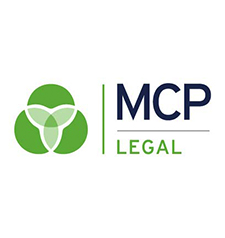
When owning property, business or other assets, or contemplating an acquisition, asset protection must be an important consideration.
Many self-employed people and those in positions of responsibility, should be conscious that their personal assets are highly exposed.
Once there is a threat to assets, it is often too late to protect them. Protecting assets also includes determining the most appropriate structure to hold your assets.
It is vital to:
– Where possible, ensure that capital injections into an asset, generally in the form of loans, are secured over the assets of that business venture or property.
– Determine the most appropriate structure to hold an asset in conjunction with lawyers and accountants.
– Wherever possible, ensure personal and business assets are not at risk from third parties.
– Avoid the provision of spouse/personal/director guarantees where possible, which may expose personal assets.
– Ensure the above measures are relatively documented.
Should there be a threat of legal proceedings, generally a spouse’s assets will not be caught in a bankruptcy proceeding or company liquidation if:
– The spouse has not guaranteed the debts of the business.
– The spouse’s assets have not been mortgaged to secure debts.
– They are not a partner to a business under attack.
– The spouse’s assets were legitimately acquired by the spouse and were not transferred to the spouse to avoid creditors or trustees in bankruptcy confiscating assets. Nor can they have been transferred for a price which is less than the asset value, as this may be contrary to provisions of the Bankruptcy Act.
Insurance is a vital ingredient of asset protection as a safeguard for circumstances where a person may suffer financial loss.
However, many insurance policies may be inadequate to protect individuals exposed to trading and professional risk.
While it is vital to seek coverage from the appropriate policy, insurance policies generally preclude cover where a person has done something outside the scope, or in contravention, of the insurance policy. If this is the case, you may be liable to find funds above what an insurance policy will provide, or in total if the policy is found to not apply.
Seeking specialist insurance advice is important.
A common asset protection strategy when in a stable long term relationship is for the partner of the person exposed to risk holding all assets in their name. This is only effective where the spouse holding the assets is not exposed to any risk themselves.
Trusts, where property is held by a trustee for the benefit of others, can be effective entities to hold and protect assets.
Generally, a beneficiary of a discretionary trust does not have any right to the assets of the trust until the Trustee exercises their discretion to distribute the income or capital of the trust to a beneficiary stipulated in the Trust Deed. Accordingly, the property and other assets of the trust are not usually exposed to creditors. If a trust is established for the purpose of asset protection, it should not generally operate a business or engage in any other trading or risk related activity.
Generally, this will apply, however you can ignore a capital gain or capital loss made from a CGT event relating to a dwelling that was your principal place of residence.
This can change, however, depending on how you came to own it and what you have done with it (eg. if you rented it out). If you acquired your rental property or plant used in relation to your rental property after 19 September 1985, CGT may apply when you dispose of the property and the plant.
Accountants should be consulted in relation to all matters of taxation.
Partner
There is no stamp duty chargeable in respect of a transfer of property between those in a marital or genuine de facto relationship in Victoria.
Trust
Stamp duty may apply where there is a subsequent transfer to a trust, notwithstanding it may be controlled by the transferor, if the beneficial ownership of the assets change.
Aspects of asset protection (and taxation) must be considered, and regularly reviewed, when owning or purchasing any asset such as a property or business. Business advisers including accountants and lawyers should be involved in the process.
For more information, contact:
e: lawyers@mcpgroup.com.au
p: (03) 9620 2001
w: www.mcplegal.com.au